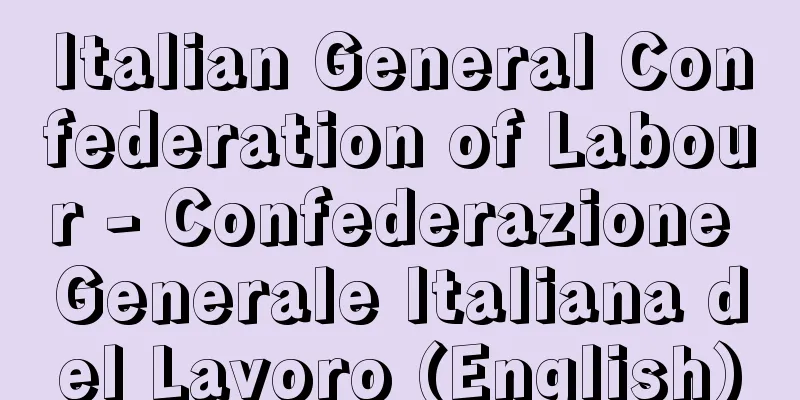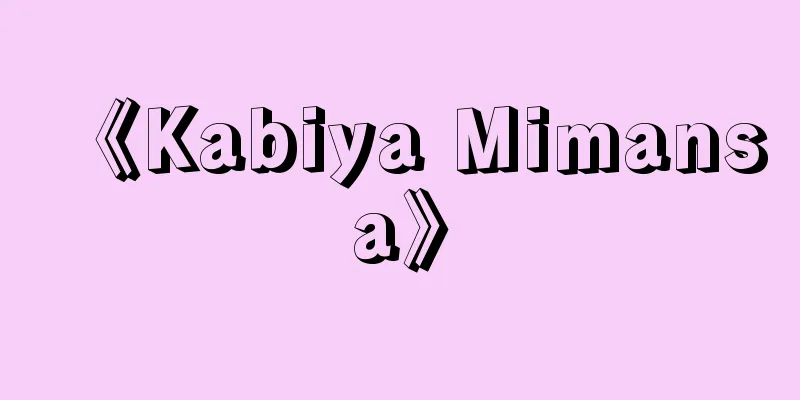Music drama (Gakugeki) (English)

|
This concept means opera as a unified whole of poetry and music, and is distinct from "musical drama" (Das musikalisches Drama), in which music is used only secondary as an interlude. The concept of music drama first appeared in 1833 by the 19th century German aesthetician Theodor Mundt. The idea of unifying poetry and music in opera was already recognized in the early days of the Florentine literary group Camerata (meaning the Fellowship), as well as in Monteverdi and Gluck, but it was none other than Richard Wagner who theoretically pursued it in works such as Opera and Drama (1851) and put it into practice. However, Wagner himself rejected the term "music drama" to avoid confusion with musical drama, and proposed the new concept of "total work of art" (Gesamtkunstwerk). This is not a collection of various arts, but an idea to integrate the originally unified arts in order to realize "drama". Therefore, Wagner did not use the term "music drama" in the titles of his works, but his works after Das Rheingold (1854) are generally called music dramas. The traditional division between recitative and aria (recital and chant) in opera numbers was abandoned, and the unique style in which "endless melody" develops organically with the orchestra defined by "leitmotif" is used. This style, which does not have a regular structure of musical sections (large sections), is also called "prose music" (musikalische Prosa). Operas by Peter Cornelius (1824-74), R. Strauss, Pfitzner, and others who were heavily influenced by Wagner, are also called music dramas. [Ryuichi Higuchi] "The Art of Richard Wagner" by Mamoru Watanabe, new edition (1987, Ongaku No Tomosha) " "Richard Wagner's Music Drama" by C. Dahlhaus, translated by Fujihiko Yoshimura and Tomotoshi Oda (1995, Ongaku No Tomosha)" [References] | | | | | | | | |Source: Shogakukan Encyclopedia Nipponica About Encyclopedia Nipponica Information | Legend |
|
詩と音楽の統一体としてのオペラを意味する概念で、音楽が間奏曲として副次的にのみ用いられる「音楽劇」Das musikalisches Dramaとは区別される。楽劇の概念は、19世紀ドイツの美学者テオドール・ムントの『批評の森』(1833)に初めて登場する。オペラにおける詩と音楽の統一は、すでに創始期におけるフィレンツェの文人グループ、カメラータCamerata(仲間の意)の人々、さらにはモンテベルディやグルックにおいても認められる思想であるが、それを『オペラとドラマ』(1851)などの著作で理論的に追究し、実践的に貫徹しえたのはリヒャルト・ワーグナーにほかならない。 ただし彼自身は、音楽劇との混同を避けるために、楽劇という名称は否定し、新たに「全体芸術作品」Gesamtkunstwerkという概念を提唱した。これは諸芸術の寄せ集めではなく、本来一つであった諸芸術を「ドラマ」の実現のために統合しようという思想である。したがってワーグナーは自作品の表題にも楽劇の名称は用いていないが、一般には『ラインの黄金』(1854)以降の作品が楽劇とよばれている。伝統的な番号オペラにおけるレチタティーボとアリア(叙唱と詠唱)の区分は放棄され、「無限旋律」が、「ライトモチーフ」によって規定されたオーケストラにのって有機的発展を遂げる独自の様式がそれであり、規則的な楽段(大楽節)構造のないこの様式は、「散文音楽」musikalische Prosaともよばれる。 ワーグナーの影響の強いペーター・コルネリウスPeter Cornelius(1824―74)、R・シュトラウス、プフィツナーらのオペラも楽劇の名でよばれている。 [樋口隆一] 『渡辺護著『リヒャルト・ワーグナーの芸術』新版(1987・音楽之友社)』▽『C・ダールハウス著、好村富士彦・小田智敏訳『リヒャルト・ワーグナーの楽劇』(1995・音楽之友社)』 [参照項目] | | | | | | | | |出典 小学館 日本大百科全書(ニッポニカ)日本大百科全書(ニッポニカ)について 情報 | 凡例 |
<<: Careful work - Careful work
Recommend
Dalbergia nigra (English spelling) Dalbergianigra
… [Ken Ogata]. . … *Some of the terminology that ...
Dried flowers (English) Everlasting flower
Natural flowers and plants dried for decorative pu...
False killer whale (English name: Pseudorca crassidens; false killer whale)
It is a member of the genus False Killer Whale, of...
Shakkanho (unit of measurement)
A unique Japanese unit system based on shaku as a...
Prefectural Ordinance Collection - Kenreishuuran
A book that records the composition of the Edo Sho...
Khaireddin
...Morocco, Algiers, Tunis, Tripoli, and other pl...
Winnipeg [Lake] - Winnipeg
A large lake in Manitoba, Canada. It stretches 380...
Ammeter - Ammeter
An instrument that measures DC or AC current. Ide...
Falconet - Étienne-Maurice Falconet
French sculptor and art theorist. Born in Paris, ...
Nikakai - Nikakai
An art group. In 1914 (Taisho 3), Western-style p...
Burne-Jones (English spelling) Edward Coley Burne-Jones
1833‐98 British painter and decorator. Born in Bir...
Honeyeater (nectar-sucking) - Honeyeater (English spelling)
A general term for birds of the family Meliphagida...
Hammer - Hammer
An ornament that protects the tip of the biwa. It ...
Kamukakariya - Kamukakariya
… [Japanese Shamanism] Japanese shamanism has bee...
Gamelan Charun - Gamelan Charun
… [kinds] Gamelans in which one or several suling...
![Distorted perspective - perspective tordue [France]](/upload/images/67cd3ffeb4445.webp)








